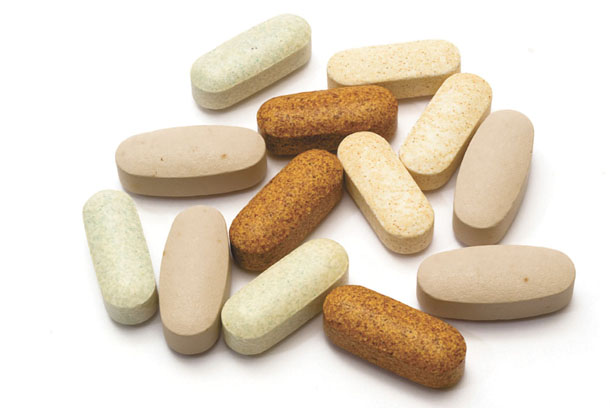By Sayer Ji
Contributing Writer for Wake Up World
Unknown to most consumers, cyanide is found in a wide range of vitamins and foods in a form known as cyanocobalamin. On its own, the cyanide has a very low potential to do harm because it is organically bound to cobalamin (vitamin b12) — that is, as long as everything is working correctly and that person hasn’t already been burdened with environmental chemical exposures from cyanide, and related xenobiotic compounds.
Cyanocobalamin is actually found in 99% of the vitamins on the market which contain B12, as it is relatively cheap (recovered from activated sewage sludge or produced through total chemical synthesis), and stable (non-perishable). Despite its wide usage, it is not an ideal form of vitamin b12, as the cyanide must be removed from the cobalamin before it can perform its biological indispensable roles within the body. While there is plenty of research on the potential value of cyanide-bound vitamin B12, it does have potential to do harm.
[pro_ad_display_adzone id=”110028″]
In fact, when a person is poisoned with cyanide, as sometimes happens following smoke inhalation, and they are rushed to the emergency room, what do they give them to remove the cyanide? Hydroxocobalamin — a natural form of vitamin b12 — which readily binds with the cyanide, becoming cyanocobalmin (which sequesters the cyanide and puts it into a form ideal for detoxification and elimination), which is then rapidly excreted from the body via the lungs and kidneys.
Those with a higher body burden or higher cyanide exposure, such as smokers, are less likely to be able to effectively detoxify the additional cyanide they consume through their diet or supplements, making the seemingly benign levels found in some vitamins and foods a real problem.
Indeed, this is not the first time the question of the potential toxicity of cyanocobalamin has been raised. As far back as 1992, a report was published in the Journal of the Royal Society of Medicine arguing for its withdrawal from use in vitamin therapy. Another study published in 1997 in the journal Blood, found that cyanocobalamin “antagonizes vitamin B12 in vitro and causes cell death from methionine deficiency.”
Cyanide in non-vitamin form, of course, is extremely toxic and a poster child of sorts, among poisons. It only takes 6.44 mg per kilogram, or 1.61 mg to kill 50% of your average-sized (500 gram) rats through the oral route of exposure. The margin of safety (as defined by the LD50) for cyanocobalamin, on the other hand, is approximately 1,000 times higher.
An entirely different approach to maintaining adequate vitamin B12 levels is through supporting the microflora in the gut, as these beneficial bacteria are proficient in producing this indispensable vitamin. Lactobacillus reuteri, for instance, has been studied for its vitamin B12-producing properties.
Other dietary sources of biologically active B12 include white button mushrooms, spirulina and chlorella. The ideal supplemental form of supplemental vitamin B12 is methylcobalamin, which while more expensive, is capable of absorbing efficiently sublingually and is cell-ready as a methyl donor. It should also be noted that the drug category known as proton pump inhibitors (acid blockers for reflux) prevent vitamin B12 absorption and microwaving food deactivates this vitamin, as well.
Further articles by Sayer Ji:
- Worried About Clogged Arteries? Drink This!
- Research: Plants Cure Cancer, Not Chemicals
- A Higher Level of Freedom – The Benefit of Cannabis to Health
- Eating Wheat & Cow’s Milk Disrupt DNA Expression & Antioxidant Status
- How WHOLE Turmeric Heals the Damaged Brain
- Fluoridated Water Can Calcify Arteries, Study Finds
- How Monsanto’s ‘RoundUp’ is Cursing the Global Food Supply
- Research Proving Vitamin C’s Therapeutic Value in 200+ Diseases
- Biophotons: The Human Body Emits, Communicates with, and is Made from Light
- 13 Evidence-Based Medicinal Properties of Coconut Oil
- The Ancient Flower That Heals The Human Soul
About the author:
Sayer Ji is an author, educator, Steering Committee Member of the Global GMO-Free Coalition (GGFC), advisory board member of the National Health Federation, and the founder of GreenMedInfo.com – an open access, evidence-based resource supporting natural and integrative modalities. His writings have been published and referenced widely in print and online, including Truthout, Mercola.com, The Journal of Gluten Sensitivity, New York Times and The Well Being Journal.
In 1995 Sayer received a BA degree in Philosophy from Rutgers University, where he studied under the American philosopher Dr. Bruce W. Wilshire, with a focus on the philosophy of science. In 1996, following residency at the Zen Mountain Monastery in upstate New York, he embarked on a 5 year journey of service as a counsellor-teacher and wilderness therapy specialist for various organizations that serve underprivileged and/or adjudicated populations. Since 2003, Sayer has served as a patient advocate and an educator and consultant for the natural health and wellness field.
Visit GreenMedInfo online and on Facebook, or sign up for GreenMedInfo’s e-Newsletter.
[pro_ad_display_adzone id=”110027″]








